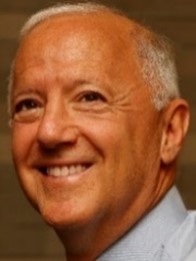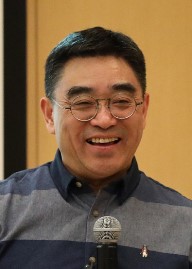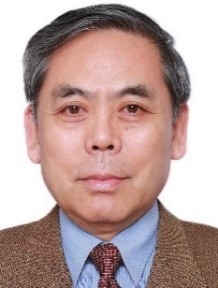Introduction
U.S.-China Track II Dialogue on Healthcare
In 2017, the National School of Development at Peking University and the National Committee on U.S.-China Relations established a Track II Dialogue on Healthcare between the United States and China to discuss major issues surrounding healthcare faced by both nations. Dr. Mark McClellan, a US former FDA Commissioner, Professor and Director of the Robert J. Margolis Center for Health Policy at Duke University leads the American team. Dr. Gordon G. Liu, Peking University (PKU) BOYA Distinguished Professor of Economics at the PKU National School of Development, Dean of PKU Institute for Global Health and Development, and an elected member of the Chinese Academy of Medicine leads the Chinese team.
The Dialogue brings Chinese and American leading experts in healthcare policy and practice together to discuss critical healthcare issues, aiming to explore areas of improvement for collaboration and cooperation between China and the U.S. It concludes with a key set of points for considerations and policy recommendations in both countries. Based on the Dialogue, a consensus report will be followed to be circulated to relevant high-level departments in both governments.
Organizations
The National Committee on United States-China Relations
The National Committee on United States-China Relations is a non-profit educational organization that encourages understanding of China and the United States between citizens of both countries. The Committee’s continuity of experience and depth of associations with senior officials and distinguished citizens of China and the United States make it a unique national resource. Established in 1966 by a broad coalition of scholars and civic, religious, and business leaders, the Committee was founded in the belief that vigorous debate of China policy among Americans was essential and that balanced public education could clarify U.S. interests and strengthen our foreign policy. Similarly, the founders believed that over time dialogue with Chinese citizens would enhance mutual understanding, a basic requirement for stable and productive relations.
Over the decades, the Committee’s basic purposes have not changed, although programs have been developed in response to shifting needs and opportunities. The Committee focuses its exchange, educational, and policy programs on international relations, economic development and management, governance and legal affairs, environmental and other global concerns, mass communication, and education administration. The Committee’s programs draw strength from its members, who now number more than 700 Americans from all parts of the country, and nearly 60 corporations and professional firms. They represent many viewpoints, but share the belief that increased public knowledge of China and U.S.-China relations requires ongoing public education, face-to-face contact and forthright exchange of ideas.
National School of Development at Peking University
The National School of Development (NSD) at Peking University is a comprehensive college that offers a multidisciplinary environment for teaching and research in economics, management science, and public policy. Its predecessor, the China Centre for Economic Research (CCER) was established in 1994 by Professor Justin Yifu Lin and five other overseas-trained economists. Following its expansion of teaching and research, CCER was renamed the National School of Development in 2008.
The NSD has a strong faculty featuring domestically and globally recognized scholars such as Justin Yifu Lin, Qiren Zhou, Wen Hai, Weiying Zhang, Guoqing Song, Weifang Min, Yang Yao, Yiping Huang, Gordon Liu, Ling Li, Yaohui Zhao, and Jun Fu. The NSD upholds Peking University's values of inclusiveness and academic freedom; it promotes socially meaningful research in economics, management science, and public policy, and is committed to contributing to China’s economic and social progress.
The NSD is China’s leading institution that combines teaching, research and policy advising. It is an integral part of Peking University’s drive to become a world-class university.
The NSD offers teaching programs in three areas: academia, business and public policy. Its academic programs include an economics master and PhD program, a bachelor program in national development, and a double-major economics program. Its business education is offered through BiMBA (Beijing International MBA) that hosts MBA, EMBA and EDP programs. In 2016, NSD added public policy as one of its teaching programs through a newly established institute, ISSCAD (Institute of South-South Cooperation and Development), whose mandate is to offer doctoral and master degrees to senior officials from developing countries.
Institute for Global Health and Development at Peking University
On May 4, 2020, when celebrating the 122nd anniversary of its founding,Peking University announced the establishment of the Institute for Global Health and Development (GHD), aimed at leveraging the University wide resources to build a leading research institution in responding to the global health and human development challenges in the 21st century. GHD focus on global health in the framework of human development from a cross-border perspective: exploring solutions to major health issues around the world, promoting China’s active participation in global governance, and contributing global public goods for the health, and wellbeing of mankind. At the same time, GHD will train future leaders in global health, breaking through the talent bottleneck, and improve China’s ability to participate in global health governance. Thus, China may better assume its important responsibility and public obligation to advance global health.
Through scientific research, think tank services, talent training, and industry-academia research cooperation, GHD is committed to promoting China’s involvement in sustainable, inclusive human development on the basis that human health is a fundamental value shared by all countries.
Organizing Committee
U.S. Co-Organizer

Stephen Orlins, President, National Committee on U.S.-China Relations
China Co-Organizer

Gordon G. LIU, Peking University (PKU) BOYA Distinguished Professor, National School of Development;
Dean, PKU Institute for Global Health and Development
U.S. Co-Chair

Mark B. McClellan, Director and Robert J. Margolis, M.D.,
Professor of Business, Medicine and Health Policy, Margolis Center for Health Policy, Duke University
China Co-Chair

LIU Qian, President, Chinese Hospital Association; professor; former vice-minister,
Ministry of Health; vice director of the National Health and Family Planning Commission;
Vice chairman of the Education, Science, Culture, and Public Health Committee of the 13th National People’s Congress